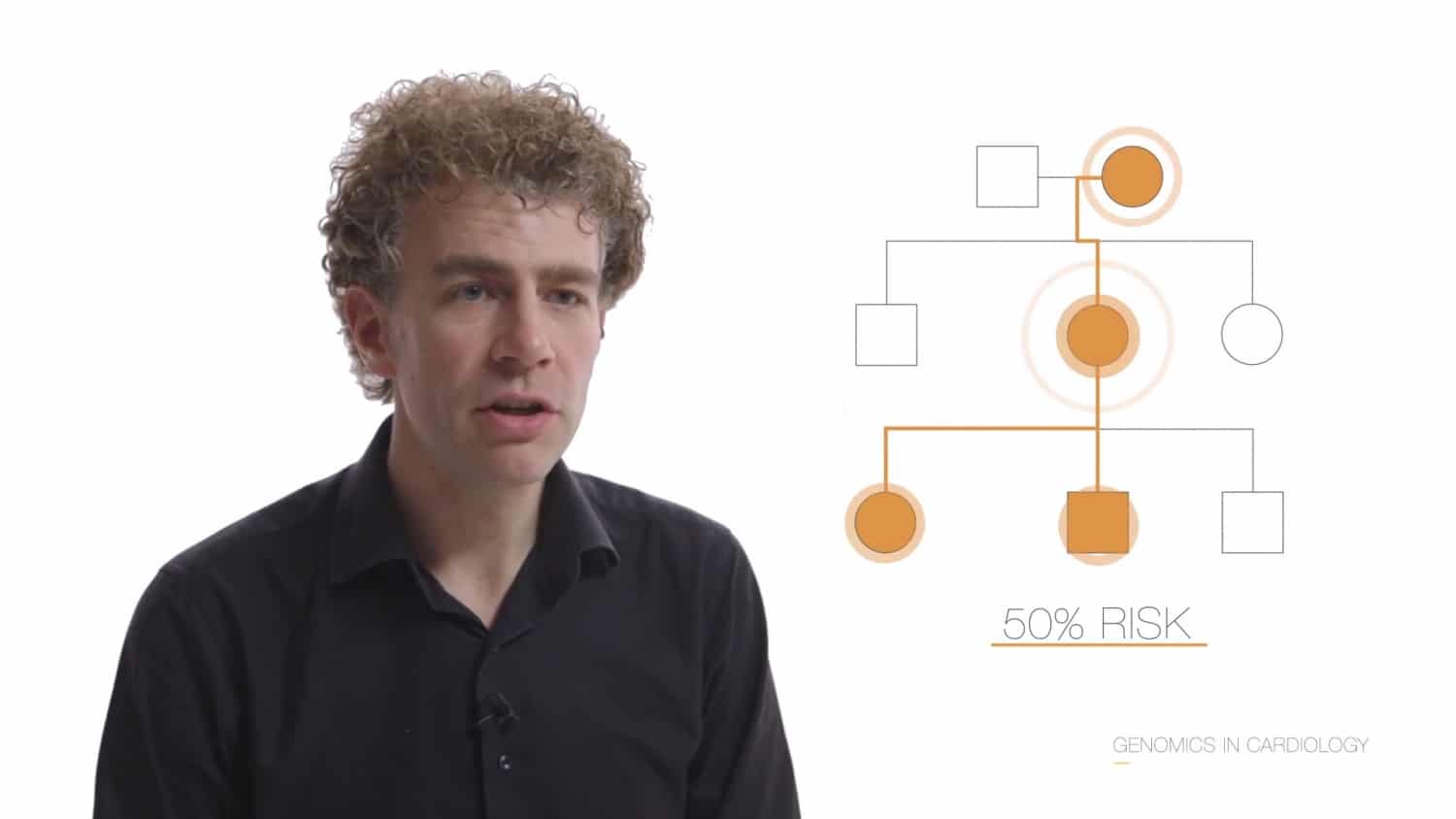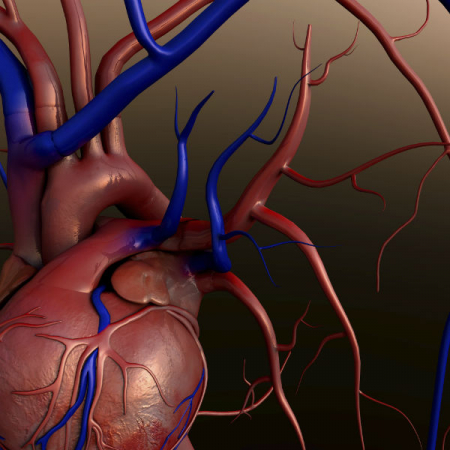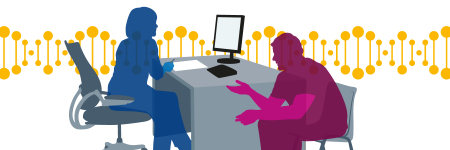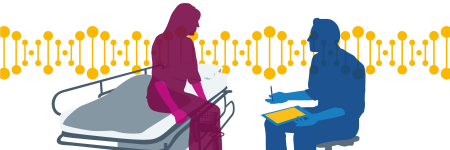Introduction
The field of cardiology is increasingly influenced by advances in genomics, which can be used in diagnosis, treatment and management in a number of ways. Now more than ever all cardiologists need to have an understanding of where genomics might be relevant in order to ensure that everyone who might benefit from genomic testing is offered it.
In this video, Dr James Ware outlines some of the latest advances and gives examples from his clinical practice that show the increasing importance of genomics in the cardiology clinic.
What do I need to know?
Why is genomics important in cardiology?
Cardiologists working in specialist inherited cardiac conditions (ICC) teams are taking increasing responsibility for genetic aspects of patient care, including initial counselling and testing, with more targeted support from clinical geneticists when needed.
Beyond ICC teams, cardiologists, general physicians and other health professionals in cardiovascular medicine are increasingly likely to encounter genetic and genomic information and should be aware of how to deal with it.
As well as a role in rarer, inherited cardiac conditions, genomics is increasingly going to have a role in assessment and management of common cardiovascular diseases such as hypertension and coronary disease.
Genomic research directly identifies genes and pathways underpinning disease that may represent new therapeutic targets. Genetics and genomics also have an important and growing role in patient stratification.
What is my role as a cardiology practitioner?
Take a family history. For example, the evaluation of a patient who has collapsed might be very different if we know that a family member died suddenly early in life.
Be aware of when genomics could be relevant and know when and how to refer for specialist advice. All patients with a potentially inherited condition should have the opportunity to be assessed by a specialist Inherited Cardiac Conditions service, and most will be managed in partnership with such a team.
Be familiar with the genomic test report and what to do with genomic data in the clinic. For example, will the results influence family management, prescribing and so on? Genetic test results should only be returned to the patient by those confident and competent to do so.
Genomics in practice: inherited cardiac conditions
Families with inherited cardiac conditions
Patients with a suspected ICC should be referred to a specialist ICC service to ensure they benefit from the latest developments in genomic medicine.
Most ICCs are autosomal dominant, meaning that immediate family members have a 50% chance of inheriting the same condition.
Genetic testing can be used to determine the risk to the patient’s family members; this is known as cascade testing.
Treatment and management of cardiac conditions
For some inherited cardiac conditions, treatment can be refined when we understand the precise molecular basis of an individual’s condition. For example, those with inherited arrhythmia may receive treatment tailored to the genetic cause.
Increasingly, other cardiological treatment can also be chosen in accordance with an individual’s genetics. For example, genetic testing can determine whether an individual will be resistant to clopidogrel, or has an elevated risk of developing statin myopathy.
Genetic information can be used to intervene early. For example, adopting a favourable lifestyle has been shown to reduce coronary disease risk by around 50% even in the presence of a high genetic predisposition.
New therapies
Understanding the genetic basis of disease can give us an insight into the molecular mechanisms and pathways involved, which can allow us to develop new treatment strategies. For example, specific disease-modifying targeted therapies are in phase 3 trials in both dilated and hypertrophic cardiomyopathies.
Inherited conditions can serve as genetic models for more common forms of disease. For example, PCSK9 inhibitors – a new class of lipid lowering therapy – were developed as a result of studies into familial hypercholesterolaemia.
New genome technologies are also offering the promise of new therapies through gene repair or replacement.
In the Clinic: GeNotes Cardiology
Try GeNotes (genomic notes for clinicians), our scenario-based resource, providing quick, concise information to support you when ordering genomic tests and returning back results.
Learning opportunities
Clinical resources
Identifying patients
Activity: Taking and drawing a genetic family history
Equip yourself with the knowledge and skills to construct a genetic pedigree.
Activity: Recognising the clinical clues of a genetic condition
Familiarise yourself with the clinical features of a range of genetic conditions
Clinical management
Activity: Support decision-making in a consultation
Equip yourself with the knowledge of a range of genetic conditions and the genomic tests available.
Activity: Signpost your patients to further support
Patient groups and charities can offer vital support and guidance for patients, both pre-and post-diagnosis.











